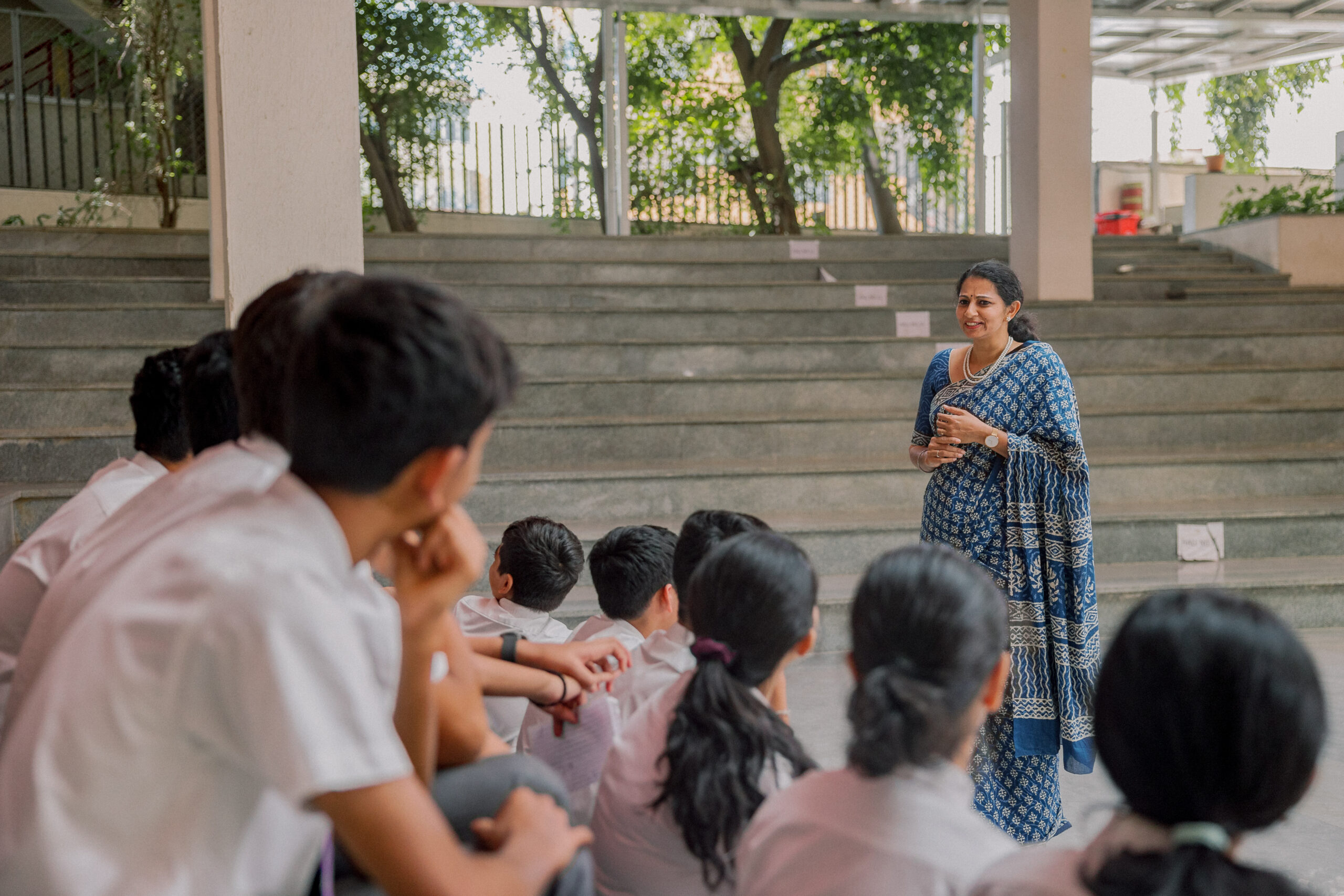Assessment
At Ekya Schools, HOW students learn is as important as WHAT they learn. The primary purpose of assessment is to provide students with varied learning experiences using various approaches. This way, learning can be measured, and a holistic understanding of where a child is and where they are headed is gained.
Purpose of Assessment
The assessments provide opportunities for learners to:
- Demonstrate understanding of conceptual knowledge
- Develop attitudes and skills
- Improve their learning

Pattern of Assessment
At Ekya Schools, we follow a pattern of assessment that evaluates content, skills and understanding in multiple ways.
- Performance tasks and Observation-based assessments (For Early Years)
- Ongoing, ungraded assignments & reflection: This includes tasks like reflection, revision, and application ofconcepts.
- Graded assessments for Official reporting:
- External – CBSE/ICSE/IGCSEBoard-related examinations
- Common- Reviews and Term-end examinations
- Unit-Based Assessments
- Student Portfolio
An assessment could be individual or group work or an authentic task. Authentic tasks provide students with opportunities to transfer their learning and solve real-world problems. All assessments focus on the application of learning rather than a simple reproduction of facts. At Ekya, all our students attempt a variety of authentic tasks throughout the year.
Examples of Assessment
Grade 3 Science: Engineering Design Challenge
Engineering Design Challenge
Students found solutions to a real-world problem using their knowledge about the properties of magnets.
Grade 4 English: Writing Project
Writing Project
Students become authors and write stories using characters, settings and story elements.
Grade 5 Computer Science:Programming
Programming
Students use SCRATCH programming language to create a simple single-player / Multiplayer game.
- Game – How many jars can you catch?
- Game – Jump the ball
Grade 10 Biology: Does Exercise increase vital capacity?
Does Exercise increase vital capacity?
Students use curiosity and an inquiry-based approach to design experiments that determine the following
- How much air does one breathe in when one takes a deep breath?
- Can one increase lung capacity by exercising regularly?
- Do athletes have greater lung capacity than non-athletes?
